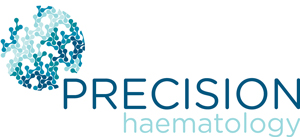Coronavirus (COVID-19) and Blood Cancer Patients
With rising community concern about the novel coronavirus or COVID-19, Myeloma Australia would like to provide the following information sheet detailing risks and preventative measures specific to the blood cancer population.
The coronavirus family are known to cause Severe Acute Respiratory Syndrome (SARS) and Middle East Respiratory Syndrome (MERS). COVID-19 is the name that has been given to this particular outbreak of coronavirus that is thought to have originated in Hubei Province, China. COVID-19 while more infectious, is not as deadly as the SARS outbreak of 2003.
How is coronavirus (COVID-19) spread?
The virus is spread through droplets that are sneezed or exhaled by an infected person. These may land directly on the mouth, nose or eyes of another person or onto surrounding surfaces such as door handles and benches. It is then transmitted when someone touches these items and touches their nose, eyes or mouth.
Symptoms of coronavirus (COVID-19)
- Fever
- Dry cough
- Shortness of breath
- Sore throat
- Fatigue
- Nasal congestion
- Runny nose
- Aches and pains
- Diarrhoea
It is possible to contract coronavirus and not experience any symptoms. 80% of people with coronavirus will recover without needing any intervention. However, those that are most at risk of becoming very ill with the virus are the elderly. Some patients with an underlying medical condition such as lung and heart disease may also be at risk. People whose immune system is already compromised are also at risk, including patients with blood cancers. The risk will vary according to their underlying disease severity and current medications.
How to prevent infections like coronavirus (COVID-19)
It is important to mention that while we are on high alert at the moment with this current outbreak, those living with blood cancer should always be actively taking measures to prevent infections.
Strategies to implement to prevent infections are:
- Washing hands regularly with soap and water or alcohol-based hand gels
- Maintain excellent food hygiene
- Ask any friends or family who are unwell to avoid visiting until they are better
- Avoid spending time in crowded areas such as public transport in peak times
- If being in the company of someone with a visible respiratory illness is unavoidable, try to remain at least 1 metre away from them to avoid droplet exposure
- Have an annual flu vaccination and any other vaccines recommended by the doctor (note: the flu vaccine will NOT directly protect from corona virus). Encourage family and friends to do the same
It is not necessary to wear a face mask, only those that have symptoms of respiratory illness and health care workers caring for those infected need to take this measure.
What to do if coronavirus (COVID-19) is suspected
If symptoms develop and there is concern that there may have been contact with COVID-19, seek immediate medical attention. It is important to call ahead to alert the clinic of the possible COVID-19 infection so they can properly prepare to ensure others aren’t put at risk.
Any questions about COVID-19 can be directed to the Australian Department of Health National Coronavirus Health Information Line: 1800 020 080
Travel
If you have been to mainland China or Iran you must isolate yourself for 14 days as this is known to be the incubation period from exposure to COVID-19 to developing symptoms. It is also recommended that health care workers that have been to Italy or South Korea should remain home from work for 14 days after their arrival back into Australia.
It is generally recommended that non-essential international travel is postponed for the time being. If travel is essential please do so under the guidance of the medical team and visit the Smart Traveller website for guidance on specific destinations https://www.smartraveller.gov.au/
Further resources
For up-to-date information about COVID-19 please use the following credible sources:
World Health Organisation
https://www.who.int/emergencies/diseases/novel-coronavirus-2019
Australian Government Department of Health

